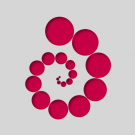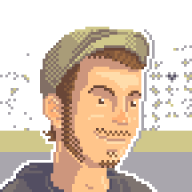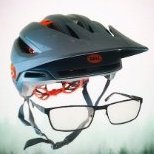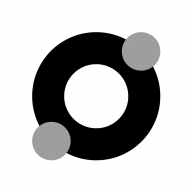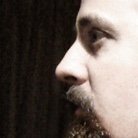-
Posts
928 -
Joined
-
Last visited
Reputation Activity
-
 telemax got a reaction from Mr. Doodlezz in Normal Map Generator
telemax got a reaction from Mr. Doodlezz in Normal Map Generator
You can generate a Normal Map using Lighting live filter.
Normal_Map_Generator.afphoto
Normal_Map_Generator.afassets
1. Open your texture in Affinity Photo.
2. Use the attached file or assets file.
3. In the Lighting ilve filter settings, load the same texture.
Normal_Map_Generator.mp4
Added AO generator.
AO_Generator.mp4 -
 telemax got a reaction from DenysP in Normal Map Generator
telemax got a reaction from DenysP in Normal Map Generator
You may find it useful to use ready-made PBR texture sets. They are designed for 3D graphics, but they can also be used in 2D, to create very realistic surfaces.
The AP allows you to use a ready-made PBR texture set. You will need at least 3 of the PBR texture sets, Height, Albedo, Normal.
You can buy PBR or download it for free:
https://www.textures.com/browse/pbr-materials/114558
https://ambientcg.com
PBR.mp4
The Height map must be loaded into the Lighting filter by pressing the "Load bump map" button in the Lighting filter settings. For the Height map, it is preferable to use a 16-bit PNG.
-
 telemax got a reaction from DenysP in Normal Map Generator
telemax got a reaction from DenysP in Normal Map Generator
Previous explanations were insufficient for new users. More detailed explanations:
Installing
1. Download and install the Normal_Map_Generator.afassets file by simply dragging it into the program window.
2. Open the "Assets" panel (View > Studio > Assets), and select "Normal Map Generator" from the list.
Using
1. Open in AP the image that you want to convert to a normal map.
This step is necessary in order to create a document with the target resolution.
2. Drag and drop the blue "Normal Map" icon from the "Assets" panel, into your document.
You should get this set of layers:
3. Expand the group, and hide or delete the "Logo" layer.
4. Double-click on the "Lighting" layer and its settings will open. Click on the "Load bump map" button, and select the same texture you opened in step 1.
5. Use the "Texture" slider to adjust the bump value.
-
 telemax got a reaction from DenysP in Normal Map Generator
telemax got a reaction from DenysP in Normal Map Generator
You can generate a Normal Map using Lighting live filter.
Normal_Map_Generator.afphoto
Normal_Map_Generator.afassets
1. Open your texture in Affinity Photo.
2. Use the attached file or assets file.
3. In the Lighting ilve filter settings, load the same texture.
Normal_Map_Generator.mp4
Added AO generator.
AO_Generator.mp4 -
 telemax got a reaction from JariH in Generate normal map in affinity photo
telemax got a reaction from JariH in Generate normal map in affinity photo
Normal Map Generator is here!
-
 telemax reacted to NotMyFault in How to align three circles at their tangent points
telemax reacted to NotMyFault in How to align three circles at their tangent points
Great tutorial!
i mentioned the issue with circle radius has up to 0.5% deviation depending on position at the radius, largest deviation typically around 45+n*90 degree. This can become relevant here, and maybe the method can be extended.
simply start with the cloud bubble tool instead of ellipse tool for a better circle approximation.
-
 telemax reacted to GarryP in How to align three circles at their tangent points
telemax reacted to GarryP in How to align three circles at their tangent points
I’ve shown one method to do this in my attached video (the text below isn’t a step-by-step guide, just notes on the video).
“Enable Snapping” should be ON, “Snap to object bounding boxes” should be ON, and “Include Bounding box mid points” should be ON.
Part A – The first circle
If you are not using Designer, and therefore can’t use the Point Transform Tool, or you just want to do it quickly, then, instead of the instructions in this part, you can simply snap the left ‘side’ of circle B to the right ‘side’ of of circle A and then rotate all the circles to how you want them later.
Draw a line from the centre of circle A to anywhere.
Use the Node Tool to move the end of the line to get the angle you want.
Use the Point Transform Tool to move and rotate circle B.
Use the Point Transform Tool to translate circle B so that it touches circle A.
Part B – The second circle
The width of the first construction circle should be: width of circle A plus width of circle C.
The width of the second construction circle should be: width of circle B plus width of circle C.
If you aren’t using Designer (and can’t use the Point Transform Tool) you can draw a line from the intersection of the two construction circles (to anywhere, the end point doesn’t matter) and then use snapping with the Move Tool to drag circle C into place.
Note: If you don't want circle B to be rotated after this then you can just double-click the rotation handle to reset it.
Important: There may be tiny gaps between the circles but that’s because they aren’t perfect circles, and that’s because of the way the Affinity applications draw circles using bezier curves. I don’t think there’s anything we can do about this.
2024-02-04 08-50-06.mp4 -
 telemax got a reaction from mattaudio in Crop Canvas in Affinity Designer?
telemax got a reaction from mattaudio in Crop Canvas in Affinity Designer?
Why not use artboards to crop the canvas?
-
 telemax got a reaction from ThirtyFiveThousand in Normal Map Generator
telemax got a reaction from ThirtyFiveThousand in Normal Map Generator
You can generate a Normal Map using Lighting live filter.
Normal_Map_Generator.afphoto
Normal_Map_Generator.afassets
1. Open your texture in Affinity Photo.
2. Use the attached file or assets file.
3. In the Lighting ilve filter settings, load the same texture.
Normal_Map_Generator.mp4
Added AO generator.
AO_Generator.mp4 -
 telemax got a reaction from ThirtyFiveThousand in Non-destructive Mask
telemax got a reaction from ThirtyFiveThousand in Non-destructive Mask
Hi,
This is a method of creating a completely non-destructive mask that allows you to use a normal layer as a mask, and do with it everything you can do with a normal layer, without any restrictions.
You can also use a group as a mask! Everything you put in this group automatically becomes a mask, and you can mix them together in Multiply mode, for example. This way a mask can be a composite of multiple layers of any type (raster, vector, color, grayscale). This gives full creative freedom!
This non-destructive mask method, created with two layer settings, Blend Ranges and Erase Blend mode. This method creates a mask from any Layer type, in a non-destructive way, keeping the original intact. And also apply Live Filters, and Adjustments.
1. Select the layer that should be the mask
2. Change its curve in Blend Ranges
3. Change its blend mode to Erase
Creating a Mask
Mask_1.mp4
Creating a Composite Mask
Mask_2.mp4
Using an image as a Mask
Mask_3.mp4
Creating a Composite Mask using different layer types
Mask_4.mp4
Applying the Live Filter
Mask_5.mp4
An alternative method using Procedural Texture
-
 telemax got a reaction from G13RL in Vector Brushes | Arrows
telemax got a reaction from G13RL in Vector Brushes | Arrows
13 vector brushes and 4 gradient types.
The original width resolution of the brush textures is 176 px.
Arrows 1-176.afbrushes Linked Samples.afdesign
Creating a gradient:
Linking properties in AP:
Linked properties:
-
-
 telemax got a reaction from loukash in Vector Brushes | Arrows
telemax got a reaction from loukash in Vector Brushes | Arrows
13 vector brushes and 4 gradient types.
The original width resolution of the brush textures is 176 px.
Arrows 1-176.afbrushes Linked Samples.afdesign
Creating a gradient:
Linking properties in AP:
Linked properties:
-
-
 telemax got a reaction from midvok in Snap to grid missing (line center)
telemax got a reaction from midvok in Snap to grid missing (line center)
In Automatic mode, snapping to the center of the line works well. But in other modes, it does not work.
1.7.2.471
Snap_to_grid.mp4 Snap_to_grid__NodeTool.mp4 -
 telemax got a reaction from Affinityconfusesme in Brushes | Splashes
telemax got a reaction from Affinityconfusesme in Brushes | Splashes
Paint splash brushes
Try light colors, such as #72B2E3 #95DFCE
Brushes
Splashes.afbrushes [Updated. Correct default blending mode is added.]
Styles
Seamless Textures - Splashes.afstyles
Assets
Seamless Textures - Splashes.afassets
Textures
Seamless Textures - Splashes.zip
-
 telemax reacted to Archangel in Fotosketcher 3.90 has just been released with new painting styles and script options
telemax reacted to Archangel in Fotosketcher 3.90 has just been released with new painting styles and script options
Fotosketcher 3.90 is now available with a new painting style and scripting support. It also has the ability to use multiple painting styles one after the other.
https://fotosketcher.com/1
-
 telemax reacted to TrentL in Blend Ranges - Tutorial for Affinity Photo and Affinity Designer
telemax reacted to TrentL in Blend Ranges - Tutorial for Affinity Photo and Affinity Designer
If you want advanced Opacity controls, Blend Ranges are the way to go. In this video, we’ll explore the Blend Options tool and show how to use it effectively for image composition.
-
 telemax got a reaction from filibis in Normal Map Generator
telemax got a reaction from filibis in Normal Map Generator
You may find it useful to use ready-made PBR texture sets. They are designed for 3D graphics, but they can also be used in 2D, to create very realistic surfaces.
The AP allows you to use a ready-made PBR texture set. You will need at least 3 of the PBR texture sets, Height, Albedo, Normal.
You can buy PBR or download it for free:
https://www.textures.com/browse/pbr-materials/114558
https://ambientcg.com
PBR.mp4
The Height map must be loaded into the Lighting filter by pressing the "Load bump map" button in the Lighting filter settings. For the Height map, it is preferable to use a 16-bit PNG.
-
 telemax got a reaction from filibis in Normal Map Generator
telemax got a reaction from filibis in Normal Map Generator
Previous explanations were insufficient for new users. More detailed explanations:
Installing
1. Download and install the Normal_Map_Generator.afassets file by simply dragging it into the program window.
2. Open the "Assets" panel (View > Studio > Assets), and select "Normal Map Generator" from the list.
Using
1. Open in AP the image that you want to convert to a normal map.
This step is necessary in order to create a document with the target resolution.
2. Drag and drop the blue "Normal Map" icon from the "Assets" panel, into your document.
You should get this set of layers:
3. Expand the group, and hide or delete the "Logo" layer.
4. Double-click on the "Lighting" layer and its settings will open. Click on the "Load bump map" button, and select the same texture you opened in step 1.
5. Use the "Texture" slider to adjust the bump value.
-
 telemax got a reaction from filibis in Normal Map Generator
telemax got a reaction from filibis in Normal Map Generator
You can generate a Normal Map using Lighting live filter.
Normal_Map_Generator.afphoto
Normal_Map_Generator.afassets
1. Open your texture in Affinity Photo.
2. Use the attached file or assets file.
3. In the Lighting ilve filter settings, load the same texture.
Normal_Map_Generator.mp4
Added AO generator.
AO_Generator.mp4 -
 telemax got a reaction from TrentL in Frosted glass / Background blur
telemax got a reaction from TrentL in Frosted glass / Background blur
This is a short tutorial for Affinity Photo that shows you the steps for creating a frosted glass effect.
The finished effect created in Affinity Photo can be used and edited in Affinity Designer.
1. Deselect all layers.
2. Click the "Live Filters" icon in the Layers panel, and choose Gaussian Blur from the list. Move the slider so that the effect is visible.
3. Create a shape, it must be filled with color, it can be vector or raster. This shape will be the silhouette of the frosted glass.
4. In the Layers panel, drag the "shape" layer onto the "Gaussian Blur" layer icon so that a small vertical bar appears on the layer icon.
Thus, the shape will limit the effect, i.e. the shape will be a mask for the blur effect.
Tip: For the effect to work properly on the artboard in Affinity Designer, the artboard must have a background as a vector or raster non-transparent layer, or just apply color to the artboard. Also, the "Preserve Alpha" option must be enabled in the blur effect settings.
Example files: Blur.afdesign Blur_Artboard.afdesign
Video tutorial:
Blur.mp4 - -
 telemax reacted to NotMyFault in Always noise in gradient.
telemax reacted to NotMyFault in Always noise in gradient.
Thanks @telemax, but I did not invented this trick. Still works in V2.
more important:
The setting in
Does only impact rendering in Affinity. If you export, the export will contain dithering! Even when this setting is off.
and regarding the title you the thread:
Dither is not noise. It only swaps positions of pixel colors, using the old color values which differ only slightly. In contrast to noise, it does not randomly change color values (it will never create „new“ color values not already in the file).
-
 telemax reacted to infacto in Frosted glass / Background blur
telemax reacted to infacto in Frosted glass / Background blur
If I understand correctly, did you create the effect in Photo and import it into Designer (copy & paste)? Because Live Filter cannot be created in Affinity (v1)? Interesting that things which cannot be created are supported by paste... Why not just allow creating live filters in Designer (at Serif devs)? Anyway... thanks for the hint. I hope this (unofficial?) feature works in the future (not tested in v2 yet). Update: There are some bugs e.g. when creating a group. It feels a bit hackish.
Update: It seems this no longer works in V2. I wonder why? Is this for marketing? I bought all programs (Universal License). NOT because of missing features in each program. So why blocking this core features? ...
-
 telemax got a reaction from Kal in making circle shaped brush "hard edge" in Affinity Photo/Designer
telemax got a reaction from Kal in making circle shaped brush "hard edge" in Affinity Photo/Designer
Have you tried Pixel Tool?
-
 telemax got a reaction from infacto in Frosted glass / Background blur
telemax got a reaction from infacto in Frosted glass / Background blur
This is a short tutorial for Affinity Photo that shows you the steps for creating a frosted glass effect.
The finished effect created in Affinity Photo can be used and edited in Affinity Designer.
1. Deselect all layers.
2. Click the "Live Filters" icon in the Layers panel, and choose Gaussian Blur from the list. Move the slider so that the effect is visible.
3. Create a shape, it must be filled with color, it can be vector or raster. This shape will be the silhouette of the frosted glass.
4. In the Layers panel, drag the "shape" layer onto the "Gaussian Blur" layer icon so that a small vertical bar appears on the layer icon.
Thus, the shape will limit the effect, i.e. the shape will be a mask for the blur effect.
Tip: For the effect to work properly on the artboard in Affinity Designer, the artboard must have a background as a vector or raster non-transparent layer, or just apply color to the artboard. Also, the "Preserve Alpha" option must be enabled in the blur effect settings.
Example files: Blur.afdesign Blur_Artboard.afdesign
Video tutorial:
Blur.mp4 - -
 telemax got a reaction from Ldina in Non-destructive Mask
telemax got a reaction from Ldina in Non-destructive Mask
Hi,
This is a method of creating a completely non-destructive mask that allows you to use a normal layer as a mask, and do with it everything you can do with a normal layer, without any restrictions.
You can also use a group as a mask! Everything you put in this group automatically becomes a mask, and you can mix them together in Multiply mode, for example. This way a mask can be a composite of multiple layers of any type (raster, vector, color, grayscale). This gives full creative freedom!
This non-destructive mask method, created with two layer settings, Blend Ranges and Erase Blend mode. This method creates a mask from any Layer type, in a non-destructive way, keeping the original intact. And also apply Live Filters, and Adjustments.
1. Select the layer that should be the mask
2. Change its curve in Blend Ranges
3. Change its blend mode to Erase
Creating a Mask
Mask_1.mp4
Creating a Composite Mask
Mask_2.mp4
Using an image as a Mask
Mask_3.mp4
Creating a Composite Mask using different layer types
Mask_4.mp4
Applying the Live Filter
Mask_5.mp4
An alternative method using Procedural Texture


